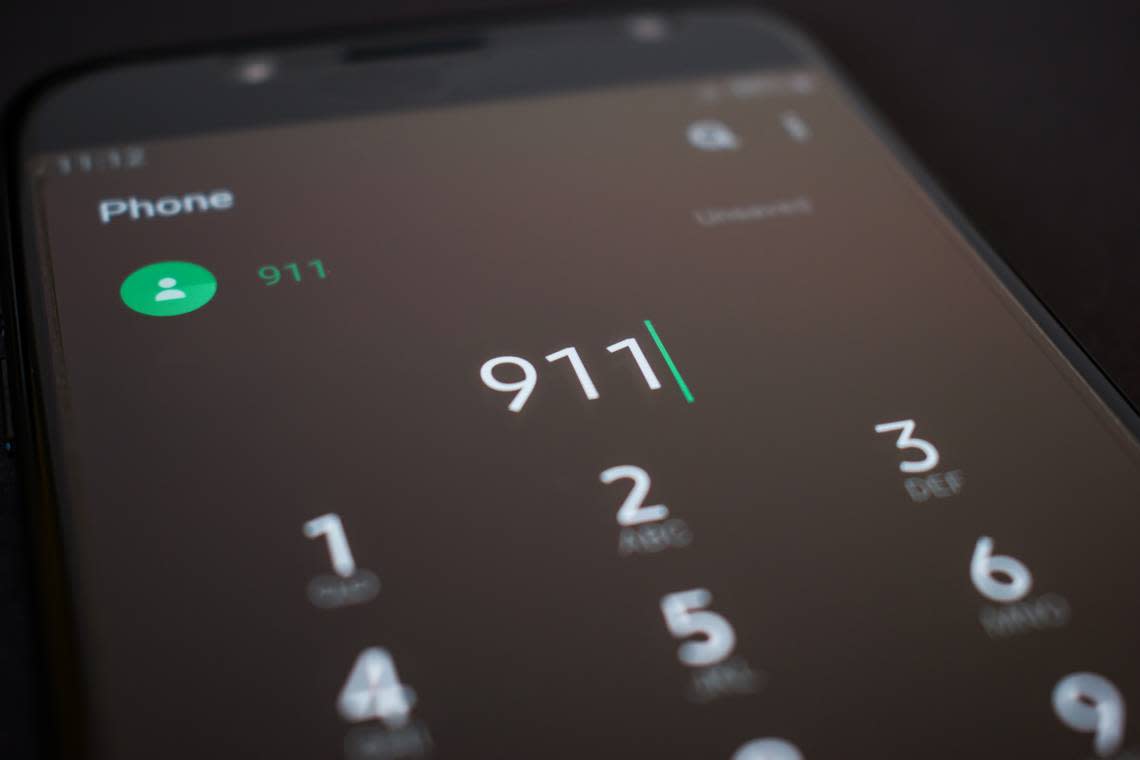WA man who allegedly identified as a ‘cyber terrorist’ online just arrested and charged

A Bremerton man was arrested Thursday on an indictment charging him with ten counts of “swatting,” which is a federal felony. The suspect allegedly proclaimed himself to be a “cyber terrorist” to others online and broadcast himself over the internet making the calls.
Swatting is defined as “the malicious practice of making hoax emergency calls to an emergency service, such as a police department, to falsely report an ongoing emergency at a particular location,” according to the indictment document.
The 20-year-old male suspect, Ashton Connor Garcia, had allegedly made more than 20 swatting calls between June and September 2022 to law enforcement in 11 states and even Canada, according to a news release from the U.S. Attorney’s Office.
“Fortunately, no one was hurt as law enforcement responded to Mr. Garcia’s swatting calls,” stated Richard A. Collodi, Special Agent in Charge of the FBI’s Seattle field office in the news release. “However, it is impossible to quantify the significant harm caused by his actions, which affected communities across the nation.”
Garcia is being charged with 10 counts of the following crimes:
Two counts of extortion
Three counts of threats and hoaxes
Interstate threats
Hoaxes regarding firearms
Hoaxes regarding aircraft
Two counts of threats and hoaxes regarding explosives
A copy of the indictment states that Garcia threatened to harass certain people and organizations. He obtained personal information from his victims, including dates of birth, addresses and identities of family members. Some of his friends online requested him to swat certain targets.
The indictment file elaborates that Garcia demanded money, credit card information or sexual photographs from those he targeted. If the victims didn’t comply, Garcia threatened to place a swatting call.
In his calls, Garcia falsely claimed that he and others planted explosives at certain locations, the document states. He also claimed that other people he was targeting had committed murders, rape, had kidnapped someone, or possessed dangerous weapons like explosives or firearms. On multiple occasions, he even falsely reported hostage situations.
“Every time Mr. Garcia is alleged to have made one of his false reports to law enforcement, he triggered a potentially deadly event – sending heavily armed police officers to an address where they mistakenly believed they would confront someone who was armed and dangerous,” stated U.S. Attorney Nick Brown in the news release.
The document continues, stating that law enforcement responded to many of Garcia’s phony allegations. On some occasions, armed authorities entered and detained individuals that Garcia targeted. “This created a volatile and potentially lethal situation for responding law enforcement officers and scared victims who misunderstood the true nature of the situation they were confronting,” the indictment file states.
Garcia made his first appearance in the U.S. District Court in Tacoma on Thursday. The FBI is continuing to investigate the case with support from local law enforcement agencies in the U.S. and Canada.
Threats and hoaxes involving explosives are punishable by up to 10 years in prison, the news release states. Other hoaxes and crimes Garcia is alleged to have committed are punishable by up to 5 years in prison. Those convicted of extortion can face up to two years.
The crimes Garcia is being charged with involve him reporting false information to rouse a power response from authorities. In Washington state, a person is guilty of false reporting in the first degree if “ the report was made with reckless disregard for the safety of others, the false reporting caused an emergency response, and death is sustained by any person as a proximate result of an emergency response.”
What to do if you’re swatted
Situations involving swatting are potentially lethal. In 2019, a California man was sentenced to 20 years in prison for reporting a fabricated hostage situation that led to the death of an innocent man. Celebrities have also been targets to swatting perpetrators, including Justin Bieber, Miley Cyrus, Tom Cruise and others.
Swatting can happen anywhere, and victims are confused and thrown off guard when forced to comply with law enforcement. Legal information website FindLaw explains what to do if you’re ever the victim of a swatting prank.
Remain composed and don’t make sudden movements.
Cooperate with authorities. Allow them to search your home, and they will soon parse out that the tip they received was false.
Swatting is illegal, so you should file a police report. Treat the situation seriously - your life was put in danger, and you have every right to pursue legal action against the perpetrator.
Call your phone company. They may be able to track down the person who placed the fraudulent emergency call against you. If you get prank calls at your home, you should be able to block the number from calling you directly.

